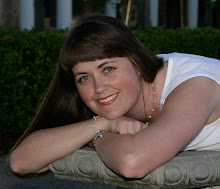I got on the ACFW website today and found out about their Genesis competition. It's for unpubbed authors to submit up to 15 pages of their manuscript for consideration. There isn't any publishing deal out of it, but the winner (who will be announced at the 2009 conference) will get first pick of editors/agents to meet with at the 2010 conference. So that's a big deal.
I started looking at the genres: Contemporary Fiction, Contemporary Romance; Historial Fiction, Historial Romance, Mystery/Suspense/Thriller, Romantic Suspense, Science Fiction/Fantasy/Allegory, Women's Fiction, and Young Adult.
The categories that interest me are Romantic Suspense, Women's Fiction and Contemporary Romance.
Women's Fiction is now supposed to incorporate the chick/mom/hen/lady lit subgenre. Apparently the industry is moving away from these terms, and the conference wants to reflect that. I write in first person, and probably 90% of my books are from the heroine's point of view. This makes me now a "Women's Fiction" writer, apparently. But here's the definition from ACFW for Women's Fiction.
Novels or sagas set in any location, in a contemporary setting, targeted toward women readers of any age. Issues are those women relate to, often involving relationships. Romance can be an element, but doesn't carry the story.
Hmm. Problem. Romance can be an element, but doesn't carry the story. Hmm.
Cathy Yardley's definition of Chick Lit is "generally a coming-of-age or 'coming-of-consciousness' story where a woman's life is transformed by the events of the story" and her choices." Usually the novels are typically funny and upbeat, with a distinctive type of author "voice" that lends itself to the genre. Now THIS fits me (at least I think so).
So how can Chick Lit be sucked up into women's fiction when romance doesn't carry the story?
Now I know why a pubbed author wrote me back and told me to classify my writing as "humorous women's fiction" instead of chick lit.
On to the other definitions.
Contemporary Fiction: The love story is set in any location in a contemporary setting, and is the main focus of the novel. The end of the book is emotionally satisfying. The stories in this category can be dramatic or comedic.
Romantic Suspense: A suspense plot is blended with a love story, which is the main focus of the novel, and the end of the book is emotionally satisfying. The story can be in any location, but the time frame should be a contemporary setting.
Now for the kicker. The disclaimer in the FAQ section for the contest says this: Please be aware that the industry expectations for contemporary romance and romantic suspense have a higher level of involvement of the hero than is usual in a typical chick lit novel. For example, most contemporary romance and romantic suspense novels have the hero and heroine meeting in the first chapter, whereas most chick lit novels have the hero appearing for the first time several chapters into the story. Also, most contemporary romance and romantic suspense novels novels have 40-50% of the scenes from the hero’s point of view, whereas chick lit is often only from the heroine’s point of view.
DID YOU READ THAT? My current WIP has the hero and heroine meeting in the first chapter. And after reading Gayle Roper's latest, I went back and added some POV from the hero. But certainly not 40-50%. But I could tweak it, of course, to do this. They are in several scenes together throughout the book, and I could re-write them from his POV.
So I'm thinking of submitting a portion of my current WIP (which I hope that I would actually finish before the conference should any one want to request the full manuscript) and making the hero's POV stronger. I technically could enter in both the Women's Fiction and Romantic Suspense if I do this.
Wish me luck!
Wednesday, February 11, 2009
Genre Discussion
Posted by Jeannie Campbell, LMFT at 11:01 PM
Labels: ACFW, competition, Genesis, genre
Subscribe to:
Post Comments (Atom)













0 comments:
Post a Comment